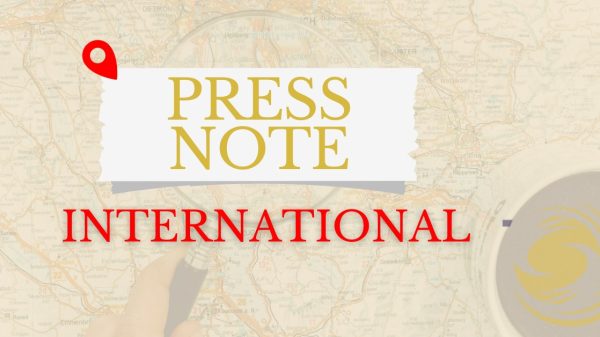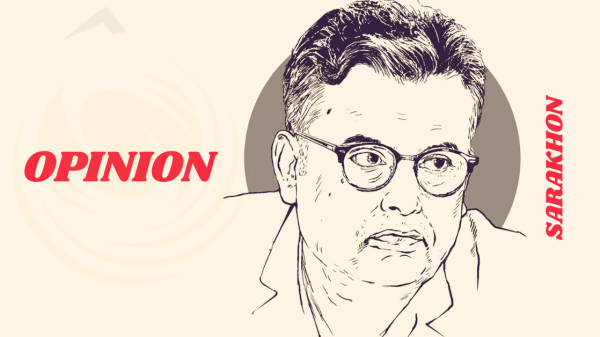Trump and Zelenskiy to Finalize Minerals Agreement

- Update Time : Friday, February 28, 2025

Trump Announces Tariffs on Mexico, Canada, and China
Reuters,
President Donald Trump has declared the imposition of tariffs set to take effect on March 4, targeting Mexico and Canada. Additionally, an extra 10% tariff will be applied to Chinese imports, a measure aimed at addressing the ongoing fentanyl crisis. The administration asserts that these tariffs are a necessary response to what it perceives as insufficient efforts by these nations to curb the flow of illicit substances into the United States. The decision has elicited varied reactions from international trade partners and domestic industries, with concerns about potential economic repercussions and the impact on diplomatic relations. Analysts suggest that while the tariffs are intended to pressure foreign governments into action, they may also lead to increased costs for American consumers and businesses. The long-term effects of these tariffs remain uncertain, as stakeholders await further developments and potential negotiations.
Trump and Zelenskiy to Finalize Minerals Agreement
Reuters,
In a significant diplomatic engagement, President Donald Trump and Ukrainian President Volodymyr Zelenskiy are poised to finalize a minerals deal during a meeting at the White House. This agreement aims to bolster cooperation between the United States and Ukraine in the extraction and processing of critical minerals, which are essential for various industries, including technology and defense. The partnership is expected to enhance Ukraine’s economic stability while providing the U.S. with a reliable source of these vital resources. Officials from both nations have expressed optimism that this deal will strengthen bilateral ties and contribute to regional security. The collaboration underscores a strategic effort to reduce dependence on other sources for critical minerals, aligning with broader geopolitical objectives.
Bombing at Pakistani Islamic Seminary Claims Lives
Associated Press,
A tragic bombing at an Islamic seminary in northwestern Pakistan has resulted in the deaths of five worshippers and left dozens wounded. The attack occurred during Friday prayers, just ahead of the holy month of Ramadan. The seminary, known historically as a training ground for the Afghan Taliban, has been a focal point in regional tensions. Authorities are investigating the incident, with initial reports suggesting the involvement of extremist factions aiming to destabilize the area. The local community is in mourning, and security measures have been heightened to prevent further incidents. This event highlights the ongoing challenges Pakistan faces in combating terrorism and ensuring the safety of its religious institutions.
Citigroup’s $81 Trillion Transaction Error
Financial Times,
Citigroup narrowly averted a monumental financial blunder when it mistakenly credited a client’s account with $81 trillion instead of the intended $280. The error, described as a “near miss,” did not result in any funds leaving the bank but has raised serious questions about Citigroup’s operational controls and risk management protocols. The incident has been reported to regulatory authorities, and internal reviews are underway to identify the root cause and implement measures to prevent future occurrences. This event underscores the critical importance of robust financial systems and the potential consequences of lapses in oversight within major banking institutions.
Russian Interference Confirmed in German Elections
Financial Times,
Germany’s federal election has been confirmed to have been subject to “clear” and “successful” manipulation by Russian actors, according to the head of the Bundestag’s intelligence committee. The interference is believed to have contributed to the unprecedented gains of the far-right in the recent elections. Officials are calling for a comprehensive acknowledgment of the impact and are urging the government to implement measures to safeguard future electoral processes. This revelation has sparked a broader debate on the resilience of democratic institutions in the face of foreign influence and the necessity for enhanced cybersecurity measures.
OpenAI Unveils GPT-4.5 with Enhanced Accuracy
Financial Times,
OpenAI has announced the launch of GPT-4.5, the latest iteration of its artificial intelligence language model. This version promises a significant reduction in inaccuracies, commonly referred to as “hallucinations,” compared to its predecessors. The development is poised to enhance applications that rely on AI for tasks such as content generation, customer service, and data analysis. Industry experts anticipate that GPT-4.5 will set new benchmarks in AI performance, offering more reliable and contextually accurate outputs. The release reflects OpenAI’s ongoing commitment to advancing AI technology while addressing previous limitations.
Deepfake Scandal Highlights Privacy Concerns
WIRED,
A recent deepfake scandal has brought to light significant privacy and ethical concerns surrounding artificial intelligence technologies. The case involves non-consensual explicit content created using AI, which was stored on major cloud platforms without the subject’s consent. Efforts to remove the content faced substantial challenges, highlighting the difficulties individuals encounter in protecting their digital identities. This incident has prompted calls for stricter regulations and the development of more robust tools to detect and prevent the misuse of AI in creating deceptive or harmful content.
Tesla Faces Backlash Amid CEO’s Political Involvement
WIRED,
Tesla is experiencing a notable decline in sales, particularly in European markets, attributed to CEO Elon Musk’s recent political engagements. Musk’s public support for controversial political figures and policies has led to a polarized public perception, affecting consumer sentiment and purchasing decisions. The situation underscores the complex interplay between corporate leadership, personal political activities, and brand reputation. Analysts suggest that companies may need to navigate the delicate balance between executive expression and maintaining a broad customer base to sustain market performance.
Former Anti-Vaccine Advocates Reverse Stance
The Guardian,
Nikki Hill Johnson and Lydia Greene, once prominent figures in the anti-vaccine movement, have publicly reversed their positions after confronting the detrimental effects of misinformation within their communities. Initially influenced by unfounded fears, they chose not to vaccinate their children, leaving them susceptible to preventable diseases. Their change of heart emerged as they recognized inconsistencies and extreme conspiracies propagated by anti-vaccine groups. Now, both advocate for critical thinking and reliance on credible scientific data, emphasizing the importance of vaccinations in safeguarding public health. Their journeys highlight the potential for individuals to alter deeply held beliefs when presented with compelling evidence and the realities of misinformation.










Leave a Reply